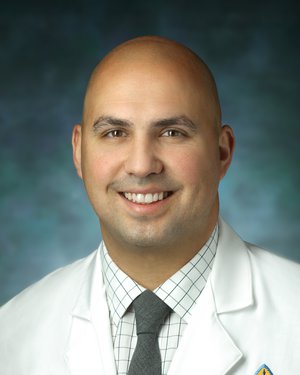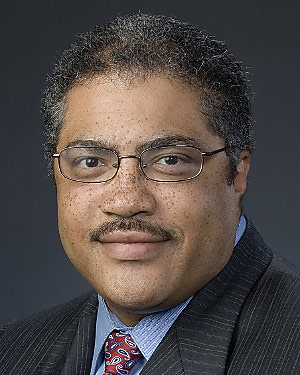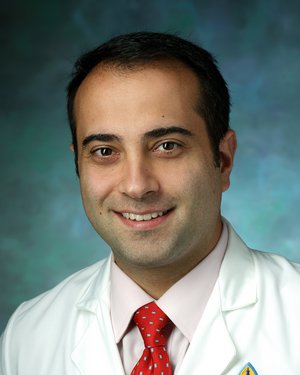-
Justin Omar Benabdallah, M.D.

Expertise: Active Surveillance of Prostate Cancer, Benign Prostatic Hyperplasia (BPH), Bladder Cancer, Endourology, Kidney Cancer
Primary Location: Sibley Medical Building, Washington, DC
-
Arthur Louis Burnett, M.D.

- Director, Basic Science Laboratory in Neuro-Urology
- Patrick C. Walsh Professor of Urology
- Director, Sexual Medicine Fellowship Program
Expertise: Cystocele, Enterocele, Erectile Dysfunction, Gender Affirming Care, Male Sexual Dysfunction
Primary Location: Johns Hopkins Outpatient Center (now called Levi Watkins, Jr., M.D., Outpatient Center), Baltimore, MD
-
Amin Sedaghat Herati, M.D.

- Director of Male Infertility and Men’s Health
Expertise: Benign Prostatic Hyperplasia (BPH), Erectile Dysfunction, Low Testosterone, Male Infertility, Pelvic Pain
Primary Location: Johns Hopkins Medicine - Green Spring Station, Lutherville, MD
-
Naren Nimmagadda, M.D.

Expertise: Benign Prostatic Hyperplasia (BPH), Bladder Cancer, Bladder Stones, Hydrocele, Kidney Cancer
Primary Location: Johns Hopkins Community Physicians - Howard County, Columbia, MD
-
Edward James Wright III, M.D.

- Director, Division of Reconstructive and Neurological Urology
- Director of Urology, Johns Hopkins Bayview Medical Center
Expertise: Incontinence, Lower Urinary Tract Reconstruction, Pelvic Floor Disorders, Pelvic Organ Prolapse, Urethral Stricture
Primary Location: Johns Hopkins Bayview Medical Center, Baltimore, MD
Conditions We Treat: Benign Prostatic Hyperplasia (BPH)
Benign prostatic hyperplasia (BPH) is a noncancerous enlargement of the prostate gland and the most common benign tumor found in men. BPH produces symptoms by constricting the flow of urine through the urethra.
Request An Appointment Request An Appointment
Schedule by phone
Adults: 410-955-6100
Pediatrics: 410-955-6108
Benign Prostatic Hyperplasia: Why Choose Johns Hopkins
- Our team is at the forefront of BPH care, researching new ways to relieve BPH. symptoms, boost our patients’ quality of life, including developing effective, minimally invasive treatment techniques.
- Our highly skilled team provides attentive care to the full spectrum of patients, whether symptoms are minor or more severe.
- You will receive thorough and ongoing care management, featuring regular follow-up to ensure your treatment plan is working well for you.
Treatment for Benign Prostatic Hyperplasia
Treatment for BPH, which involves different approaches to increasing urinary flow, is usually only necessary if your symptoms are bothersome. You’ll want to make an appointment with a Johns Hopkins BPH expert to learn more about your treatment options. These may include:
- Monitoring. For patients with minimal symptoms, this strategy includes regular checkups and testing to monitor the condition. Treatment only begins when the condition progresses.
- Medications. A variety of drug treatments work to relieve symptoms by either shrinking the prostate or by relaxing the prostate muscle.
- Prostatic Urethral Lift (PUL). Minimally invasive treatment option that can open the urethra with permanent implants.
- Transurethral prostatectomy (TURP). The gold standard for treating BPH, this procedure requires no incision. Instead, part of the prostate is removed through the penis.
- Simple prostatectomy. During this procedure, the surgeon removes the inner portion of the prostate.
Benign Prostatic Hyperplasia Experts
Our multidisciplinary team of experienced urologists will work with you to develop a treatment plan.
